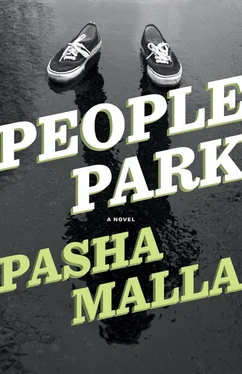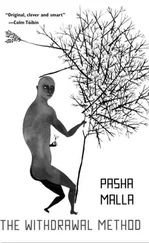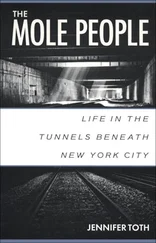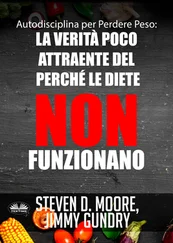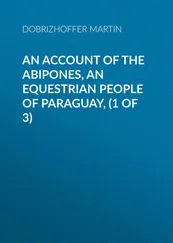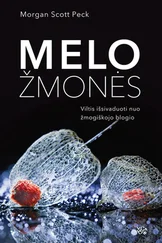But all we have is Institute ID. And since we’re not from here originally —
They consider us nonresidents, the fuggin appleheads.
They’ll make us leave and once things’re back to normal we’ll just come back.
It’s so senseless.
Fuggin senseless is what it is.
Kellogg nodded.
You heard about the flooding?
We were just at the Campground, said Kellogg, to get our bags, the beach is underwater but —
Not just there, said the girl. At the Institute too. The lake’s coming up.
Also they’re saying there are riots in the Zone, said the boy. His eyes glinted with — what? arousal? People are attacking people and looting. So we hear.
The megaphone wailed: Hi, okay, listen up, we’re about set to begin this. . evacuation, or I mean extradition — the Helper lowered the megaphone. The crowd waited. Finally he spoke: Your free trip home.
Since the Slipway would be the evacuees’ route out of the park, those assembled at its base were deemed the front of the line. Complaints — But I’ve been here since dawn, etc. — petered into subdued grumbling, it was too muggy to put up much of a fight. From the Slipway the crowd wrapped around the gazebo, across the common to the far side of Crocker Pond, where Kellogg and Elsie-Anne found themselves at the end of the line.
Kellogg folded a sweat-sodden braid behind his daughter’s ear. His own clothes had gone heavy and damp. The air felt tenser, somehow jagged, now that the dull throb of waiting had sharpened into anticipation.
Soon, Annie, said Kellogg, taking her hand. Mummy’ll find Gip and we’ll all be home.
Elsie-Anne blinked. In Viperville only the baby eels survived. All the grown-ups died.
Is that what Familiar says? Is he back?
Not yet, she said. But he’s coming.
From behind them rose a sudden commotion.
The photographer, Ruben Martinez, had been pulled aside by two Helpers, one muttonchopped and grim, the other smiling amiably. While his sideburned partner exhaled hot oxen snorts and smeared a fist into his palm, the friendly one told Martinez, No photos allowed, sorry, we’re going to have to take that!
As if disqualifying a recent medallist, the Helper de-garlanded him of his camera. Then he was escorted up the Slipway, to streetlevel, out of sight. A family of four assumed the free spot in line.
Where are they taking that man? Kellogg asked the students.
Fuggin appleheads, said the girl. Shame!
Shame, agreed the boy.
Kellogg gazed out over the crowd marshalled into rows. The sun pounded the common. He felt dizzy and delirious, and at first thought he was hallucinating when, high above everything on the northeastern corner of the park, the Thunder Wheel began to turn. He couldn’t see from that distance, of course, but packed snug into a Thundercloud was the foursome of Griggs, Noodles, Magurk, and Wagstaffe.
The former three men sat buttoned into pockets of silence, while Wagstaffe videoed the scene and in his narrator’s brogue announced what he saw: Flooding on all sides of the city! Water really coming up! Nonresident evacuation’s underway —
Wagstaffe, said Magurk, shut the fug up, will you?
No need to get all dooshy, said Wagstaffe, just because you’re scared of heights.
Reaching the Wheel’s apex the Thundercloud wobbled to a stop.
Griggs’ walkie-talkie fizzed: It’s Bean. First trains arriving into Parkside West.
Good lookin out, said Griggs. He surveyed the island’s northern shore: the Narrows swelled halfway up the cliffs. Westward along Topside Drive, where the land dipped to meet the water, waves spilled into the opening of Lowell Canal. The torpid olive-coloured strip cut south alongside the Zone and jagged west between Upper and Lower Olde Towne to dump its sludgy effluent into Kidd’s Harbour. And with the Narrows flooding one end and the lake the other, the Canal was rising.
If it overflows it will go downhill, said Griggs. Mount Mustela and the Mews will be fine. The Zone though — not so much.
Is that our problem? said Magurk, glanced down, and retreated, yellowing.
Well, said Griggs, do we have any idea what’s in that water?
Actually, said Wagstaffe, lowering his camera, we do. Isa did a special on it.
And?
Oh, awful things. Lots of awful things.
I’m going to barf, said Magurk.
Well for Gregory’s sake do it over the side, said Griggs.
Noodles seemed oblivious to all this. With a blank expression, he watched the sky.
Wagstaffe shot the park, the crowd a patchwork quilt fringed with khaki. And so the crowd readies, he said, and the evacuation begins!
Don’t call it that, said Griggs, and struck up his walkie-talkie: Bean, start moving the nonresidents to Parkside West. Then he switched channels: Is the ferry in Whitehall?
Ferry’s on its way, came a reply.
Everything’s proceeding according to plan, narrated Wagstaffe.
Except finding fuggin Raven, said Magurk, his head between his knees.
Noodles gestured at the horizon, above which floated a handful of black specks.
Your people? said Griggs.
From across the water, said Noodles softly.
Choppers, bellowed Wagstaffe, zooming in. Exciting!
Here to help? said Griggs.
Noodles didn’t nod.
Then?
To watch, said Noodles, with a twitch of his lips just short of a smile.

SOPPING AND SHIVERING, Olpert and Sam bumped the door up against the bottom of the 72 Steps. Waist-deep in the encroaching lake, Olpert lifted Gip onto the bottom stair, guided Sam alongside, and there the three of them huddled, the lakebreeze a swarm of prickling insects, waves slopping at their feet.
The lake had swallowed Budai Beach, Lakeside Drive was three feet underwater: out in Perint’s Cove the Islet, reduced to peaked roofs and scraggly treetops, resembled some strange forested tanker run aground on its way to port.
Despite the sun Gip’s teeth chattered, Olpert tucked him under an arm. With a purple, trembling finger he pointed to the top of the bluffs. Let’s go, he said.
Up they went, slowly. Halfway Sam stopped, palms pressed to his eyes.
Hey, said Olpert, come on, we’re taking you to hospital. Get up. You can’t stay here.
Sam knelt, tucked his head into his chest. This is as far as I can go okay, he said.
Down below waves slung the armoire’s door against the bluffs. The water was rising.
Go, said Sam. I’ll be okay.
You’ll be okay?
I’ll be okay. But this isn’t the work. The work’s different.
Right, said Olpert, and tucking Gip against him they left Sam behind. Each step stung, his bare feet were swollen and the colour of veins.
I’m so cold, said Gip.
We’ll get out of these clothes, said Olpert, and get furs, they’ll keep us warm —
Fur: his stomach dropped. He felt for his hat — miracle, it was there. Within its folds he found Jessica, an icy nugget, little jaws frozen in a cry of anguish. She’d chewed holes in the wool, evacuated her bowels in a greenish dribble.
Gip said, What’s that.
Jessica.
Is she dead?
Olpert pocketed the hat. Twenty steps down, Sam had gone foetal.
Hey, Olpert yelled, the lake’s coming up, you can’t just lie there. Sam?
Sam didn’t move.
Gip tugged his sleeve. Should we help him?
No, said Olpert, turning. We have to go.
At the top step, Olpert looked back a final time: no sign of anyone. The water sliced the stairs in half, steadily rising.

TRAIN 2306 had the look of something discarded or forgotten, sitting there inertly in 72 Steps Station. Below in Mount Mustela things were bustling, the NFLM ensured order and joy, while other Helpers performed random citizenship checks and marched those without papers off to the park. Along with placards (RAVEN, RETURN! and WE NEED CLOSURE and THIS ISN’T MY TRUTH, I WORK AT THE AIRPORT, etc.) people lofted glowsticks and sparklers, a jaunty music played.
Читать дальше
